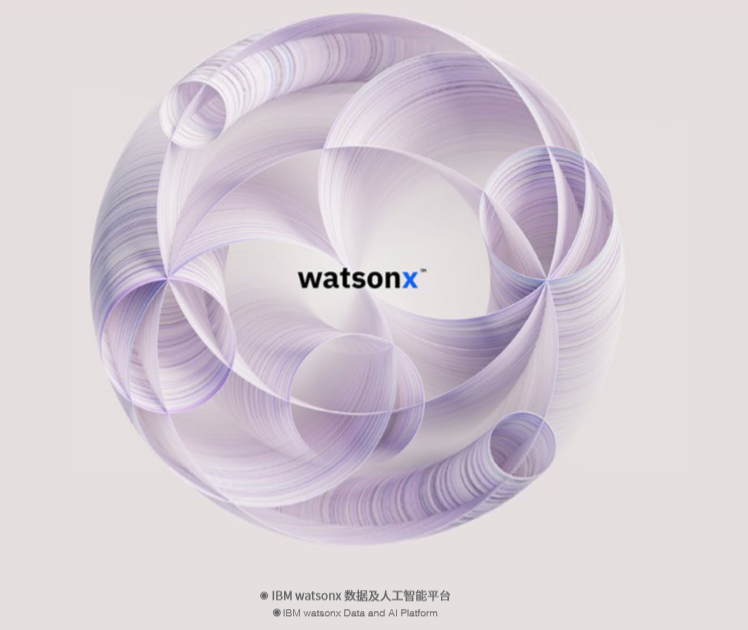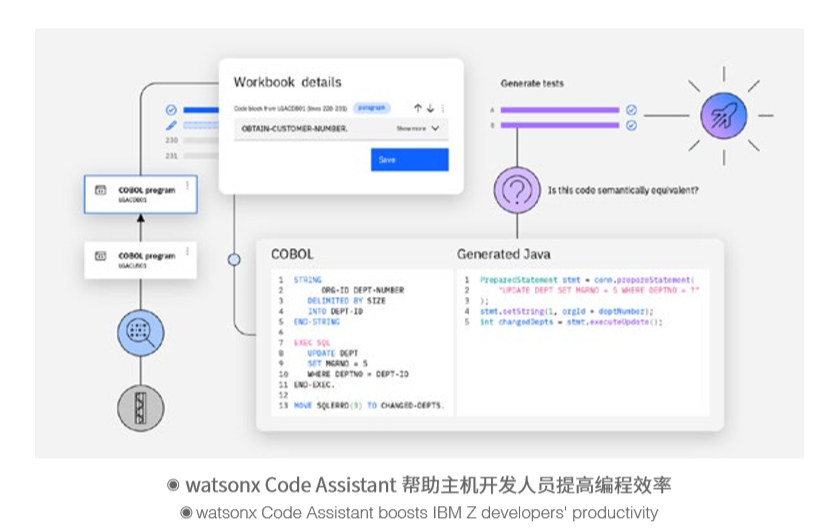
- Home
- Media Center
-
Events
- Wuzhen Summit
- Regional Forums
- Practice Cases of Jointly Building a Community with a Shared Future in Cyberspace
- World Internet Conference Awards for Pioneering Science and Technology
- The Light of Internet Expo
- Straight to Wuzhen Competition
- Global Youth Leadership Program
- WIC Distinguished Contribution Award
- Membership
- Research & Cooperation
- Digital Academy
-
Reports
- Collection of cases on Jointly Building a Community with a Shared Future in Cyberspace
- Collection of Shortlisted Achievements of World Internet Conference Awards for Pioneering Science and Technology
- Reports on Artificial Intelligence
- Reports on Cross—Border E—Commerce
- Reports on Data
- Outcomes of Think Tank Cooperation Program
- Series on Sovereignty in Cyberspace Theory and Practice
- Other Achievements
- About WIC
- 中文 | EN

Collection: IBM watsonx - the generative AI for business
Introduction
IBM announced its new enterprise-grade AI and data platform watsonx at its Think conference in May this year, to fulfill the demands of enterprise AI and put its decades-long AI expertise to work. Watsonx aims to address the three major challenges in enterprise AI, namely finding the right data, building the right models, and ensuring the right guardrails are in place.

Help enterprises transform AI into core productivity, reduce costs and increase efficiency, improve productivity, and enhance customer experience
It is becoming clear today that companies need generative AI that can be translated into productivity. That means generative AI models tailored for specific business demands and deployed using proprietary data of enterprise users. Companies need to focus on foundation models built for industry-specific scenarios and easy to finetune, to accelerate and simplify AI deployment while ensuring the right governance is in place.
Watsonx, with its AI studio (watsonx.ai), lakehouse solution (watsonx.data), and AI governance platform (watsonx.governance), is uniquely positioned to facilitate the entire data and AI lifecycle, from data preparation to model development, deployment, and monitoring. The early AI use cases that IBM has identified range from digital labor, IT automation, application modernization, and security to sustainability.
Key scenarios of enterprise AI application and IBM's solutions
IBM watsonx is on the course of general availability worldwide: watsonx.ai and watsonx.data have been rolled out and watsonx.governance will be available in the fourth quarter of 2023.
Before its official launch in May, watsonx platform had been open to over 150 users from across industries for tech preview and test, with some 40 users giving their feedback and recommendations based on their initial experience. AI's immediate value that IBM sees in these use cases, from finance and manufacturing to retail and healthcare, is process optimization, which leads to lower cost, higher productivity, and better customer experience.
To this end, IBM is devoted to developing foundation models for businesses with large language models (LLMs), IT automation models, digital labor models, cybersecurity models, and many more to come. In addition, IBM is actively infusing watsonx.ai foundation models in its major AI and automation software solutions as well as its consulting services. In IBM's early work applying basic models with clients, IBM has watched clients time to value go up to 70% faster than with a traditional AI approach.
Embrace an open-source approach and co-create with ecosystem partners
Following IBM's strategy of open source, openness, and hybrid cloud in the development of artificial intelligence, watsonx adopts open source, openness, and cloud-native technologies. IBM actively participates in and contributes to AI open-source projects, such as providing foundational models and datasets in the Hugging Face AI open-source community. IBM has designed a full-stack enterprise-grade AI technology platform based on open source and openness principles, allowing users to transparently train, optimize, reason, and manage AI models while abstracting away model heterogeneity.
IBM is actively bringing its enterprise-grade AI solutions to more than 20 industries with the "power of ecosystem", such as the 25 intelligent solutions co-developed by IBM Consulting and SAP that provide clients with AI-powered insights and automated capabilities.

Putting trust at the core of AI strategy
IBM believes that there are five pillars to trustworthy AI: explainability, fairness, robustness, transparency, and privacy. IBM has designed watsonx to adhere to these core principles of trust while being as accessible as possible.
The watsonx.governance component is an automated data and model lifecycle solution for developing strategy, assigning decision-making authority, and ensuring that organizations are accountable for risk and investment decisions. watsonx. governance uses software automation to help enhance customers' ability to reduce risk, help meet regulatory requirements, and address ethical issues, eliminating the prohibitive cost of switching data science platforms, even for models developed using third-party tools. It enables enterprises to automate and integrate multiple tools, applications, and platforms, while documenting the origin of datasets, models, associated metadata, and pipelines.
By providing the mechanisms to help secure and protect customer privacy, and proactively detect model bias and drift, watsonx.governance helps organizations meet ethics standards and proactively manage risk and reputation. Regulations can be translated into policies and business processes to help ensure compliance, while customizable reports and dashboards help maintain stakeholder visibility and collaboration.

The World Internet Conference (WIC) was established as an international organization on July 12, 2022, headquartered in Beijing, China. It was jointly initiated by Global System for Mobile Communication Association (GSMA), National Computer Network Emergency Response Technical Team/Coordination Center of China (CNCERT), China Internet Network Information Center (CNNIC), Alibaba Group, Tencent, and Zhijiang Lab.





